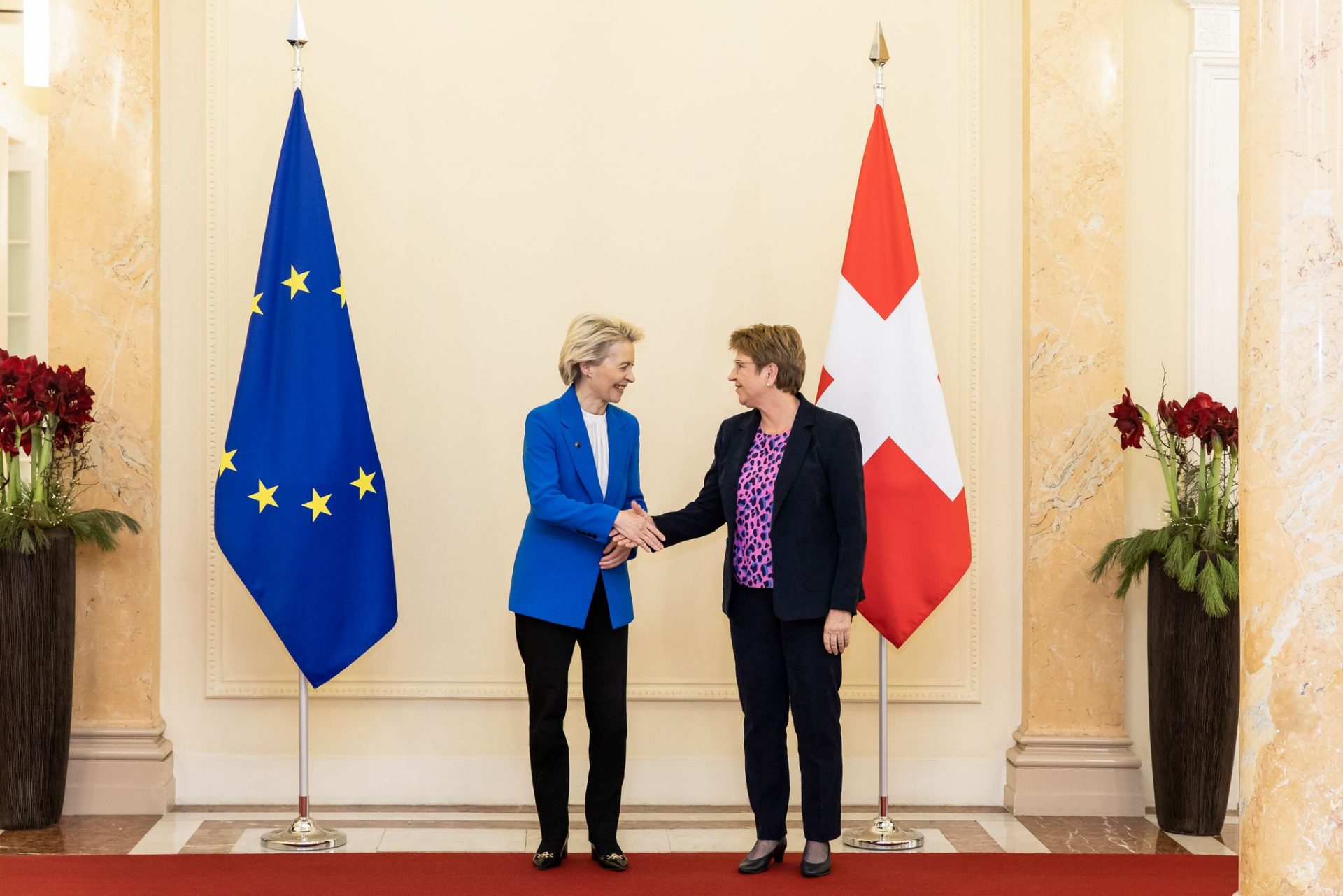 Have the article read by OpenAI (Beta). Please note that AI translations may take some time to process.
Have the article read by OpenAI (Beta). Please note that AI translations may take some time to process.Brussels/Bern (dpa) – European Commission President Ursula von der Leyen announced on Friday the successful conclusion of years-long negotiations on a future cooperation agreement between the European Union and the central European country Switzerland.
Von der Leyen described the agreement between the EU and Switzerland as “historic” while speaking alongside Swiss President Viola Amherd at a press conference in Bern. “In this challenging environment, where global power relations are constantly shifting, strong partnerships like ours are not just an advantage, they are a must,” von der Leyen said on social media platform X.
The Swiss government favoured joining the EU more than 30 years ago, but the population rejected entry into the related European Economic Area (EEA) in 1992 and put the move towards EU accession on ice. Since then, around 25 bilateral agreements have been concluded.
The new cooperation agreement is designed to deepen and expand the EU-Switzerland relationship with multiple updates to existing bilateral deals on commerce and travel that changes to EU legislation left outdated. This includes agreements on aviation, migration and trade in agricultural goods.
New pacts cover food safety, cooperation on health threats like pandemics, and Switzerland’s participation in the bloc’s research programmes and electricity markets.
The agreement includes the dynamic adoption of legislation, with Switzerland updating its provisions to maintain harmony with EU regulations.
Switzerland is to now also make a binding annual contribution of 375 million Euro to support economically undeveloped regions in the EU.
The small alpine nation must now make the necessary domestic political adjustments to its own regulations before the agreement will go to parliament for approval.
The Swiss People’s Party (SVP), the country’s most popular political party, is against further rapprochement with the EU and has been looking to delay the agreement with a referendum.
It could take until 2027 or 2028 before the entire package comes into force. (20 December)
The editorial responsibility for the publication lies with dpa.
